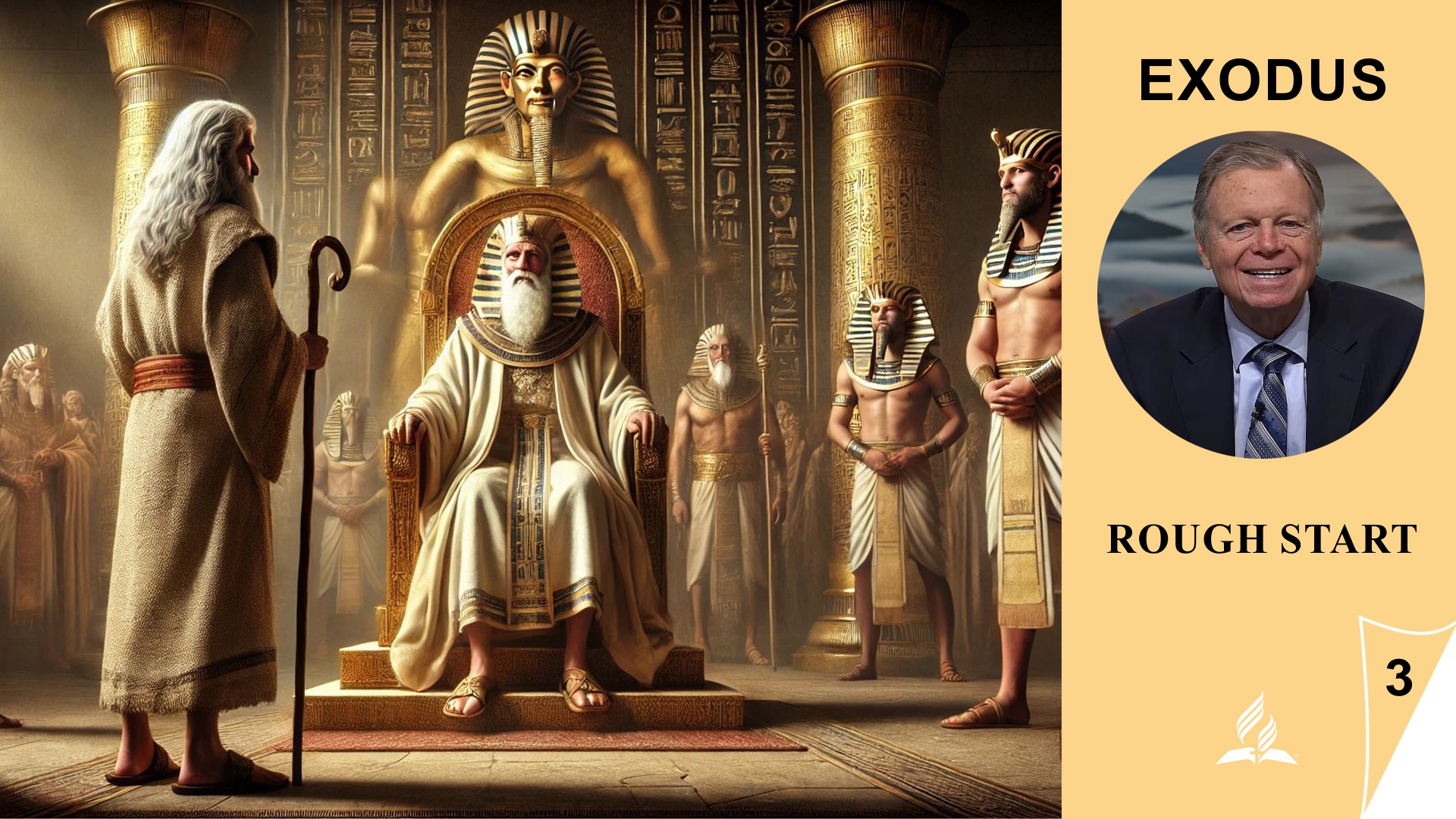
Series EXODUS with Pastor Mark Finley
Lesson 3.Rough Start
Calling Amid Resistance – God’s ways are not always easy, but they are certain
Lesson three explores the difficult beginning of Moses’ mission to free Israel from slavery. Despite clear instructions from God, Moses is immediately met with rejection—by Pharaoh and even his own people. What began with hope quickly turns into frustration. Moses doubts, complains to God, and feels overwhelmed. But it is precisely in this tension that God begins to reveal His power and faithfulness. The lesson reminds us: even when walking with God is challenging, we can trust that He will lead us to a good end.
Content:
3.1 Who Is the LORD?
When human pride challenges divine authority
Pharaoh’s reaction reveals a deep spirit of resistance against God—not out of ignorance but conscious defiance. By asking, “Who is the LORD?”, he places himself above divine authority and exposes the core of human rebellion. This attitude is not limited to ancient Egypt; it persists today in systems and hearts that ignore or fight against God. Yet God’s response to rejection is not revenge, but revelation: He reveals Himself through patience, grace, and power. To know the LORD is to know that He is holy, faithful, gracious, and just—a God who saves and liberates. Knowing Him changes everything—it turns slaves into free people.
3.2 A Rough Start
When deliverance starts with setbacks
Moses and Aaron obeyed God’s command, but instead of freedom, more suffering followed. The Israelites were disappointed, their hopes were crushed, and they blamed Moses and Aaron. These setbacks show that God’s ways are often not linear—even faith has its crises. For Moses, this was an early taste of the challenges of spiritual leadership. But in these moments, leaders learn to develop patience, humility, and trust in God. We, too, should be gracious with our leaders—especially when the way is hard and progress is invisible.
3.3 The Divine “I”
Despair meets promise – when God answers our complaint
Moses is deeply discouraged—rejection and increased suffering have replaced hope. His honest complaint to God shows that even great men of faith wrestle with God’s ways. But God doesn’t rebuke him. Instead, He reminds Moses of His promises and faithfulness with powerful “I will” statements. These assurances show that lament is acceptable when it comes from trust and hope. God does not ignore our pain—He hears, acts, and leads us to His goal.
3.4 Uncircumcised Lips
When discouragement closes ears – God’s promise still stands
Despite God’s powerful promises, Moses couldn’t reach the people—their discouragement was too deep. Pain, frustration, and unmet expectations had hardened their hearts. Moses once again felt unfit, a “man of uncircumcised lips.” But God’s plan did not depend on the people’s mood or Moses’ ability—it rested on God’s faithfulness. In times of weakness and doubt, it’s crucial to hold on to God’s promises—even when they’re not yet visible. The covenant formula “I will be your God” reminds us: our relationship with Him carries us, even when our strength fails.
3.5 Like God to Pharaoh
God equips those He calls – even in spite of excuses
Moses still felt unfit and again voiced his doubts. But God’s patience is great: He takes Moses’ objections seriously, gives him Aaron as a helper, and explains his role—as God’s mouthpiece. Thus, God gives Moses dignity and authority, despite his weakness. At the same time, God warns of Pharaoh’s hard heart but makes it clear that His power will be revealed in the end. This passage shows: God doesn’t expect perfection, but trust. Our excuses may be understandable—but God calls us anyway and equips us to fulfill His will.
3.6 Summary
When the beginning is difficult – God’s plan endures
In lesson 3, we see a discouraged Moses, a defiant Pharaoh, and a disappointed people. God’s command was clear, but the path began with difficulty: Pharaoh rejected God’s authority, and the people responded with frustration rather than faith. Moses himself doubted his calling and poured out his grief to God. But God responded with powerful promises and renewed affirmation of His faithfulness. This lesson shows: even when the beginning is full of setbacks, God continues His work—patiently, resolutely, and faithfully.
Source: https://fulfilleddesire.net/exodus-lesson-3-rough-start-sabbath-school-with-pastor-mark-finley/
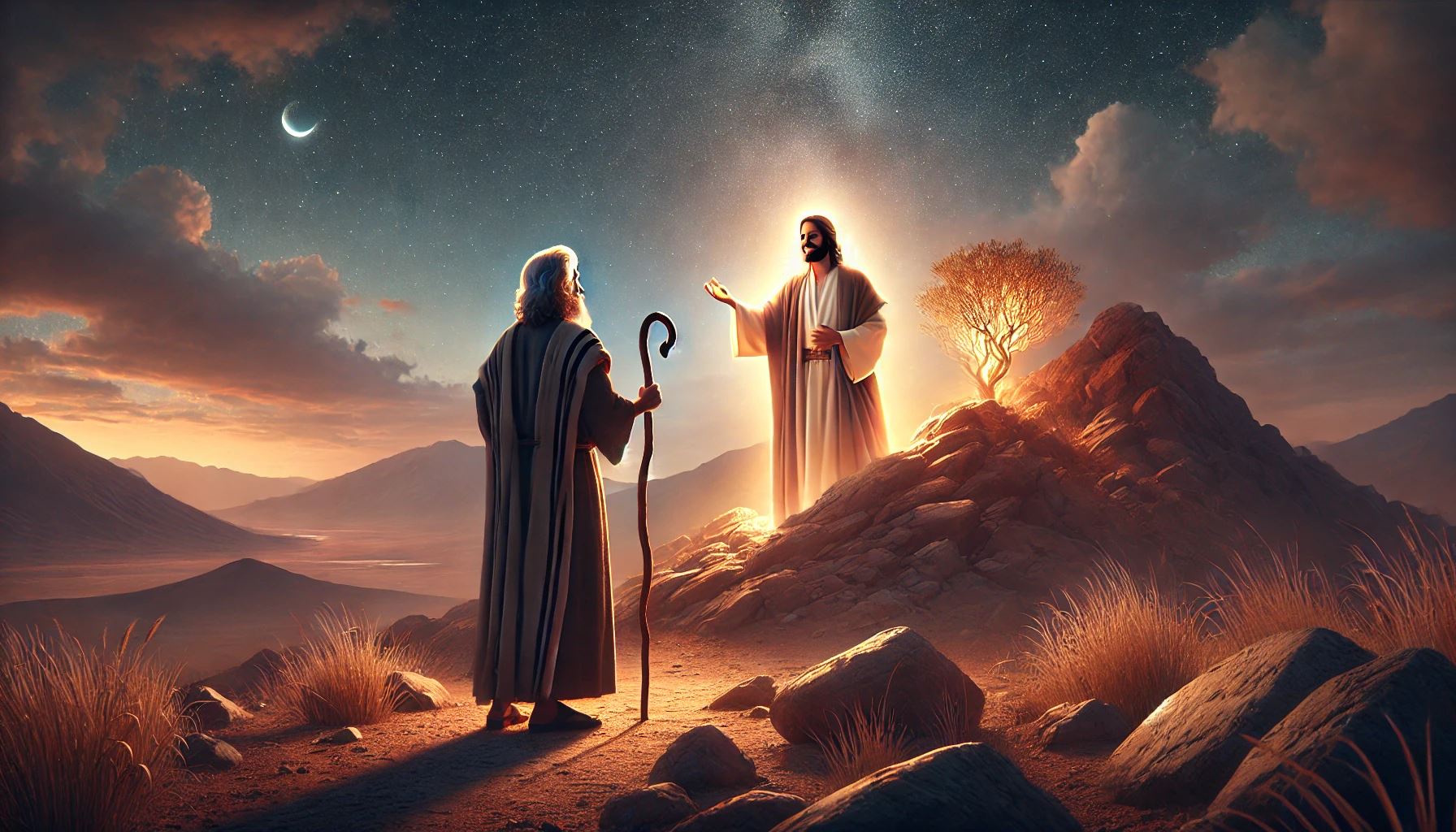
 Lesson 2: The Burning Bush
Lesson 2: The Burning Bush 2.7 Questions
2.7 Questions Recognizing God’s Call, Trusting Him, and Holding to His Truth – Lessons from the Life of Moses
Recognizing God’s Call, Trusting Him, and Holding to His Truth – Lessons from the Life of Moses Introduction
Introduction Answers to the Questions
Answers to the Questions Question 1: During the quiet years he spent in the wilderness, Moses did what God had called him to do: He was a family man, tended sheep, and—under God’s inspiration—wrote two biblical books before being called to lead God’s people. What does Moses’ experience teach us about our responsibilities in life?
Question 1: During the quiet years he spent in the wilderness, Moses did what God had called him to do: He was a family man, tended sheep, and—under God’s inspiration—wrote two biblical books before being called to lead God’s people. What does Moses’ experience teach us about our responsibilities in life? Practical Application
Practical Application Conclusion
Conclusion Thought of the Day
Thought of the Day Illustration– “In the beginning was…?”
Illustration– “In the beginning was…?”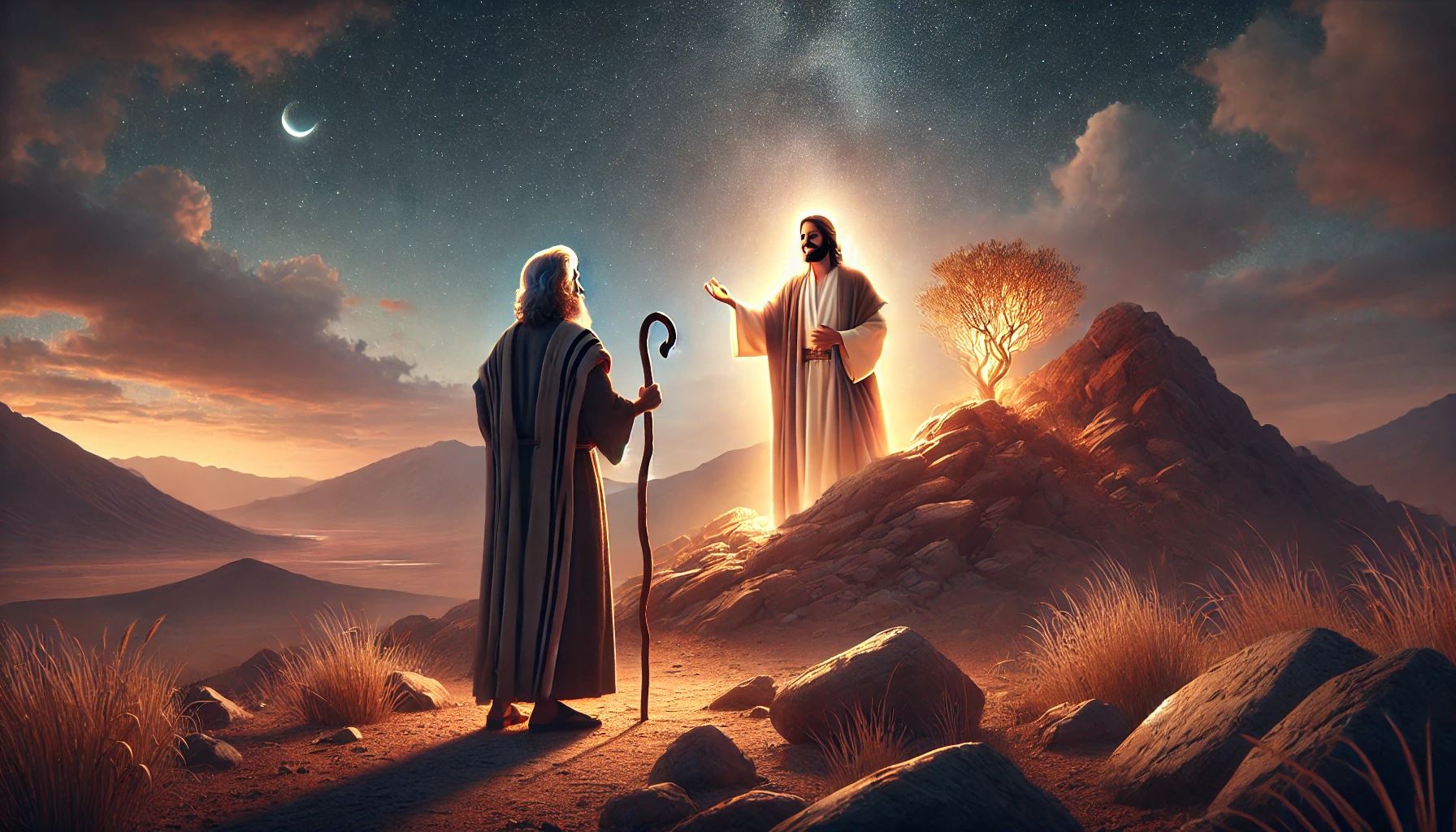
 July 12, 2025
July 12, 2025 DAILY BIBLE READING
DAILY BIBLE READING Exodus 37 – Making God’s Presence Visible
Exodus 37 – Making God’s Presence Visible The Sacred Art of Devotion – How Ordinary Work Becomes Part of God’s Plan
The Sacred Art of Devotion – How Ordinary Work Becomes Part of God’s Plan Bible Text – Exodus 37 (KJV)
Bible Text – Exodus 37 (KJV) Introduction
Introduction Commentary
Commentary Spiritual significance:
Spiritual significance: Summary
Summary Reflection Prompt
Reflection Prompt Thought to Reflect On
Thought to Reflect On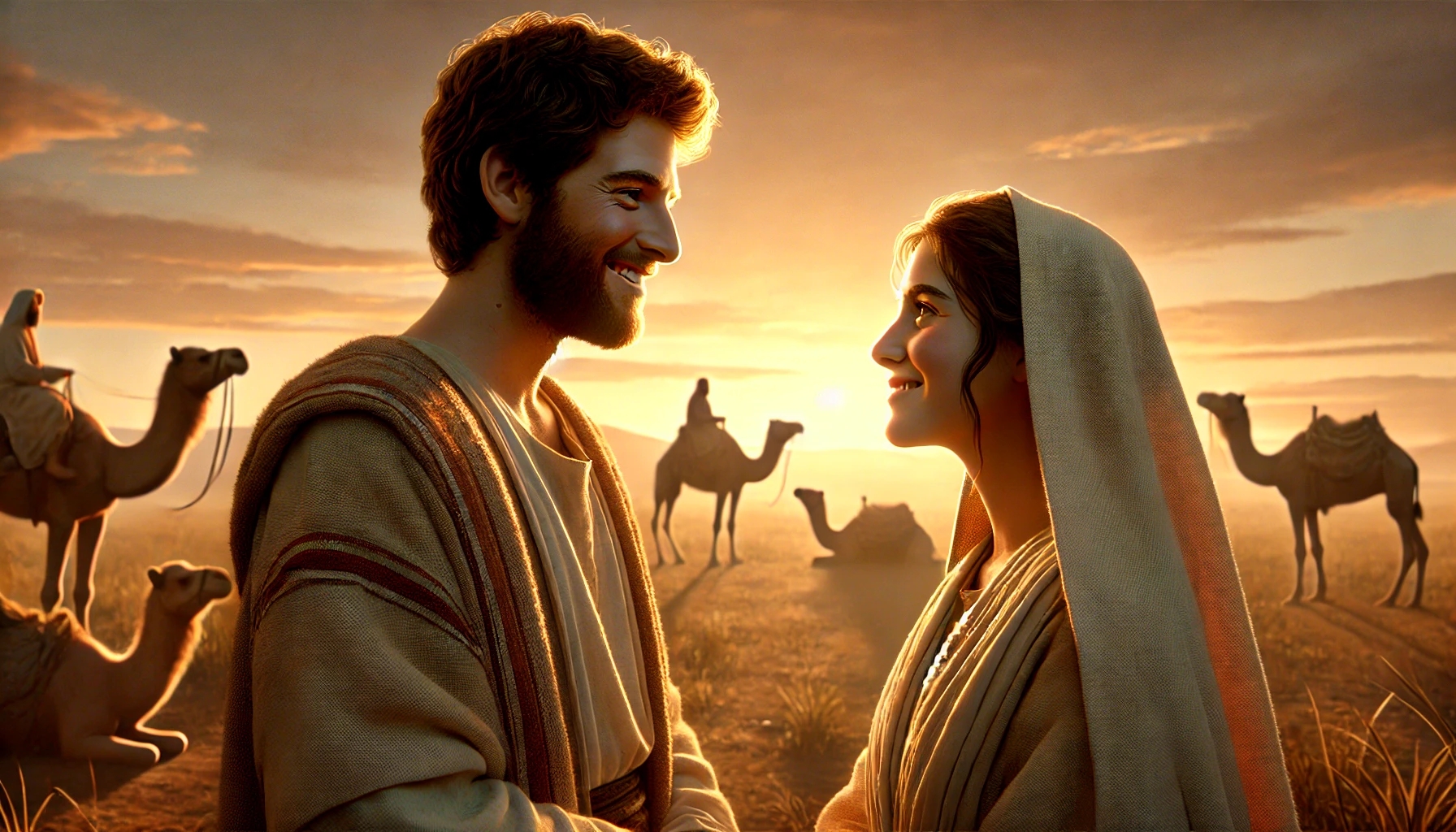
 July 06 – 12, 2025
July 06 – 12, 2025 1. The Spiritual Significance of Marriage
1. The Spiritual Significance of Marriage Key thought: Marriage is a spiritual covenant — it shapes generations.
Key thought: Marriage is a spiritual covenant — it shapes generations. Message for Us Today
Message for Us Today Reflection Question
Reflection Question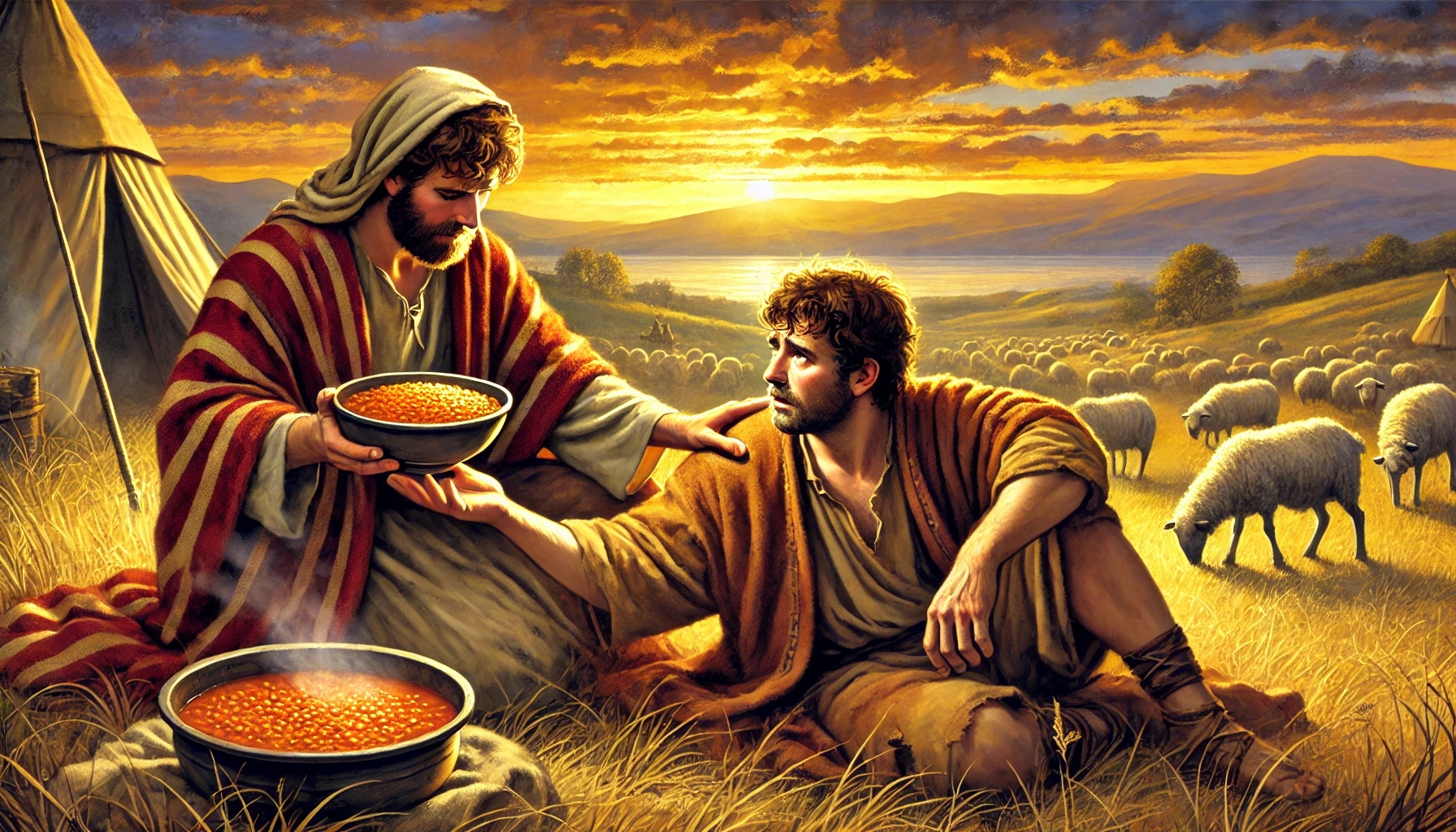
 July 12, 2025
July 12, 2025 Don’t Get Entangled!
Don’t Get Entangled! Whoever follows Jesus has a clear mission – and shouldn’t let themselves be distracted from it
Whoever follows Jesus has a clear mission – and shouldn’t let themselves be distracted from it ────────────────
──────────────── Bible Verse
Bible Verse Introduction
Introduction Devotional
Devotional What keeps me from spending time with God?
What keeps me from spending time with God? Story – “Don’t Get Lost in the Small Stuff”
Story – “Don’t Get Lost in the Small Stuff” Thoughts on the Story
Thoughts on the Story Reflection – What Does This Mean for You?
Reflection – What Does This Mean for You? Today’s Reflections
Today’s Reflections Prayer
Prayer Takeaway
Takeaway
 July 10, 2025
July 10, 2025 Adventist News Network
Adventist News Network Special Report – Day Eight of the GCSession 2025
Special Report – Day Eight of the GCSession 2025 The day included:
The day included: Election activities
Election activities Regional reports were presented by:
Regional reports were presented by: The delegates:
The delegates: Visited booths of Adventist publishers
Visited booths of Adventist publishers Participated in programs highlighting the local impact of Adventism
Participated in programs highlighting the local impact of Adventism Celebrated international reunions
Celebrated international reunions Learned about women’s ministries initiatives
Learned about women’s ministries initiatives Find more insights and background at ANN.
Find more insights and background at ANN. Stay tuned!
Stay tuned!